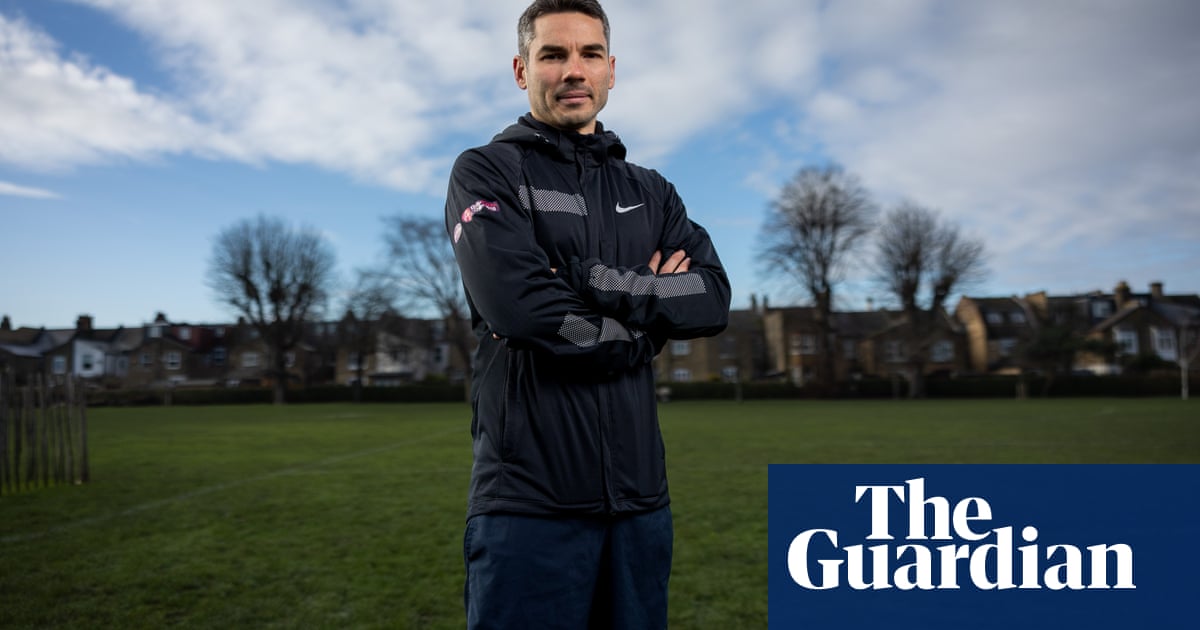
I’ve been running since my 20s, completing my first 50k race in 2012, the year I turned 50. I got my husband, Mike, into running, and in June 2016 we entered the Valles Caldera marathon, a combination of trail and dirt road through tall pines, close to where we live in New Mexico. Running at 8,000ft in 30C temperatures isn’t for everyone – I think there were only about 40 competitors, and a lot of them stopped at the halfway point.
Six hours in, two or three miles from the finish line, I was running alone. I’d just crossed a creek and was tackling a small hill surrounded by pine trees when I became aware of something approaching me from the side.
At first I took it for a chow chow dog, but as it got closer I realised it was a bear. I felt a jolt of fear, then turned towards it, raised my arms to make myself as big as I could, and shouted: “No!”
The bear kept coming, and over its shoulder I spotted a cub. I thought: “I’m in trouble now.” Suddenly, I was on my back being raked by the bear’s claws. She bit me on both arms and, when I screamed in pain, she gave me a left hook to the face.
Fighting back wasn’t an option. I tried to roll on to my belly, and she bit my neck and started shaking me, though my backpack stopped her getting much purchase with her teeth.
The right side of my face was bloody, and I could feel something rubbing against my cheek. Fearing the bear had knocked out my eye, I took a risk, gently reaching up to check. I was wondering if I could even push it back in. To my great relief, it turned out all I’d felt was my dangling, broken sunglasses.
The Department of Game and Fish phoned to say they’d found my eyebrow and asked if the doctors wanted to reattach it
The bear gave me a final whack on my backpack and retreated, making a huffing noise. Throughout the attack, which lasted maybe a minute, she hadn’t growled once – if anything, she seemed nervous. I could also hear the squalling of two cubs – the one I’d seen and another, which I realised was at the top of a nearby tree. Playing dead, I watched surreptitiously as she tried to get the cub down, occasionally glancing back at me. I actually had to fight the impulse to get up and help. Eventually, the trio headed off. I waited another 10 minutes once I could no longer hear them.
I’d been working as an ER and ICU nurse for more than 30 years and knew about “the golden hour” in trauma. I wasn’t sure how badly injured I was, but knew it was critical I received care in the next 30 minutes. Trying to get up left me dizzy and nauseated. I hadn’t brought a phone as coverage along the course was virtually nonexistent, so all I could do was wait.
It turned out there were only two runners behind me. First to arrive, half an hour later, was a 75-year-old called Ken.
“Did you fall?” he asked, then reacted with shock when I turned towards him. Behind him was a woman I knew called Andrea. They ran off in opposite directions towards the two nearest aid stations. Another half-hour after that I was being strapped to a backboard.
I was helicoptered 80 miles to the trauma centre in Albuquerque. I didn’t have any broken bones and my neck wound was minimal, but my left biceps was torn and the blow to my face had fractured my right eye socket, torn the eyelid and damaged my tear duct. I’d also lost a strip of forehead skin, including much of my right eyebrow. The New Mexico Department of Game and Fish, which had been combing the scene for evidence, phoned to say they had found the eyebrow and asked if I wanted doctors to try to reattach it. I thought about where it had been, thanked them and declined.
The mother was euthanised to test for rabies, a policy for any wild animal that attacks a human in New Mexico. I fought to get that law changed, but to no avail. The cubs were captured and looked after until they were big enough to release back into the wild.
I returned to walking trails after a few days; I didn’t want fear to keep me from doing what I love. Forest fires, droughts and human encroachment on bear territory mean close encounters are likely to be increasingly common, so we have to try to coexist.
Just a couple of years ago, I had another encounter with a bear while jogging. But I always carry a bear spray with me now and, happily, it chose to take a different route.
As told to Chris Broughton












